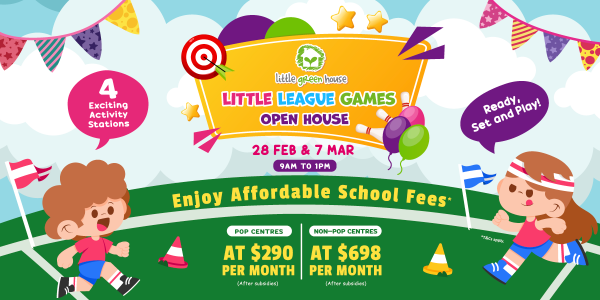Are You Guilty of Saying These to Your Kids?
As parents, we naturally want the best for our children. But is our advice doing more harm than good? Here are some common phrases you may want to think twice about before breathing another word.
1. Score As and you’ll succeed in life!
Successful people like Bill Gates and Mark Zuckerberg were not ‘A’ achievers in school. While it’s not wrong to desire the best for your kids, focusing too much on getting ‘A’s can create an unhealthy perception of true success. Today’s world is putting character and soft skills above hard knowledge, and many school curriculums now include character building, social and emotional development skills, such as self-control, collaboration, relationship-management, negotiation and perseverance. In fact, research shows that when a child’s holistic development is met, their academic progress largely shows positive results.
2. Study hard if you don’t want to work in McDonalds!
Not so! Economic downturns have shown how even skilled PMETs are not immune to retrenchment or career downgrades. Whether a person works as a cleaner, waiter, maid or construction worker, kids should be taught to respect such jobs. Explain to them that these jobs are still means to an honest living rather than carry an air of elitism. It’s better to advise on the importance of earning an income in hard times than to fall into crime!
3. X is such an achiever! You should be like him!
Comparisons among peers and siblings are not only hurtful, they can erode a child’s self-confidence and self-worth. Such trauma can last right up to adulthood (yikes!). Just because your child may not be talented in sports for example, it doesn’t mean he or she is not talented in other areas. Instead of envying other kids, celebrate the unique attributes of each of your children. This allows them to nurture their own talents without feeling inadequate or unworthy.
4. Good people will only receive good in life.
How we all wish that is true! But bad things do happen to good people regardless. While we cannot control circumstances surrounding us, we can teach our kids on how to deal with life meaningfully when things do not go according to plan. This holds the key to true perseverance, character and growth.
5. Drink milk if you want to stay strong.
While milk is good, too much of a good thing can have adverse health effects. Too much milk, for instance, could result in calcium deposits in the kidneys, inflammation from naturally occurring milk sugar and decreased iron deficiency. A well-balanced diet, regular exercise and sufficient rest is the key to good health.
6. Don’t EVER talk to strangers.
Yet, there are times kids do need to talk to strangers when circumstances call for it — such as when asking for directions or seeking urgent help. A more realistic approach is to teach them how to watch out for strangers who may act suspiciously around them Some instances include when an adult approaches a child for help rather than seeking another adult, or an adult insisting the child to follow them without their parents’ permission.
7. You’re fantastic! Don’t listen to the negative!
As much as we want our little ones to believe they are capable of anything in the world, ignoring their own shortcomings should not be one of them. There is a clear difference between speaking positively to mask reality and speaking positively to deal with reality. Unhealthy positive schmoozing can result in children reacting poorly to criticism and necessary change. A recommended approach is to address their shortcomings first before adding a positive note on how they can improve and move forward.
8. Your hand is naughty, not you.
This paradox may sound innocent and somewhat funny, but watering down discipline can affect a child’s understanding of personal responsibility. That is not to say to take discipline to another extreme, but children need to learn to be wholly responsible for their actions, rather than placing the blame on something or someone else.
9. Your elders are always right!
But let’s admit it, no adult is perfect either. Contrary to conservative beliefs, apologising to our kids for our mistakes does not reduce our authority over our kids nor erode their respect for us. In fact, the opposite happens when our children learn from our humility and understand the importance of taking responsibility for one’s mistakes. Rather than using such sweeping statements, Explain to your kids how to wisely deal with adults who may be wrong without being rude.






Give your Opinions